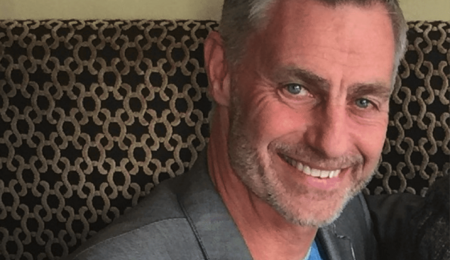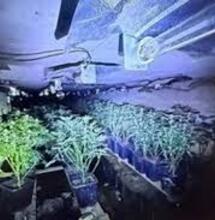Bio Ibo B.V. goes free in appeal

In January 2017 the Telegraaf (a Dutch newspaper) reported on the first criminal court case against the in Schelluinen established wholesaler of cultivation equipment. The head of the article was “first time conviction for cultivation lamp dealer” (Eerste keer straf wietlampdealer). The newspaper used the argumentation of justice whist writing the article. The prosecutor of the Criminal Investigation Department Henk van der Meijden appeared very pleased with the ruthless judgement of the Court in Rotterdam. In the courts judgement the owner of Bio Ibo B.V. was described as a stubborn entrepreneur. The police had warned him multiple times, that he was in possession of illegal items. A local police officer came armed with a list of items came to tell him which forbidden items must be removed from his company. The list entailed that everything possibly regarding cannabis cultivation must be removed. But who was the one that really was stubborn? The police and justice or the entrepreneur? On behalf of the entrepreneur I wrote a letter to justice in which I pointed out the limited extent of the as of the first of March 2015 altered Opium law (Opiumwet). Only the preparation of big scaled and business-like cannabis cultivation was against the law. The law leaves a lot of room for supplying the small cultivation, or so you would think. They also need cultivation items. In addition the altered Opium law (Opiumwet) doesn’t imply that items that could be used for cannabis cultivation are forbidden. With that knowledge I argued that the list that the police had made with forbidden items was due to the wrong interpertation of the law. That argumentation didn't fall on deaf ears. My client was convicted. He was spared the demanded prison sentence of 8 months, but in a financial aspect he was punished extremely. The article in the newspaper led to the bank complaining about “bad press” and that the bank wanted to end their relationship with Bio Ibo B.V. Tax authorities, who for years were loyal visitors of the firm tax paying entrepreneur, showed their true colours during the criminal trial. Sat side by side with their colleagues from the police they were present on the public grandstand. Justice had confiscated hundreds of thousands of euros worth of inventory. Initially Bio Ibo B.V. was required to keep the inventory in their warehouse, free of cost for Justice. After the conviction everything was taken and destroyed. Why? Because the court in Rotterdam (stubbornly) was of the opinion that the forbidden items must be withdrawn from circulation (onttrokken aan het verkeer). The Tax authorities refused the deduction of the costs due to the conviction. A stich in time saves nine is the thought behind this action.
On the 17th of January this year the Appeal court in The Hague discussed the ruling that had been appealed by the entrepreneur. Again, in the courtroom the police officers and the tax authorities were present. During the trail I motivated why the ruling made by the Judge in the court in Rotterdam must be overturned. In fact it was quite simple. If the legislator had wanted to forbid every kind of preparation of cannabis cultivation, an overall ban would have been chosen. Where must all the small cultivators, who the government want to leave unhurt to contain the pressure on the criminal backdoor of coffeeshops buy their items if wholesalers are being handled in the previously mentioned manner? Great that a mayor can’t close down a house if the cannabis is cultivated for personal use. It is also nice that more mayors sympathise with cultivators who cultivate cannabis for medical reasons. Even better that the Lower House wants to legally create the possibility for that group of cultivators that cultivate for medical reasons. But where must these people buy their items if justice keeps improving the hunt for wholesalers in cultivation items? It is impossible that this is what the legislator wanted.
The Appeal court in the Hague did what independent criminal law judges are supposed to do. They didn’t rule according to their own instinct and interpretations, but they ruled on the basis of the presented facts. The evidence that the “Cannabis Lamp dealer “ had contributed to preparing a professional and business-like cannabis cultivation was missing. The consequence was an overall acquittal. This news I haven’t yet come across in the media. That doesn’t surprise me.
Translated by Joanna McKernan. Joanna works as a Lawyer for the law firm Beckers & Bergmans in Sittard. She is a native English speaker. Joanna has a lot of experience in cannabis related civil cases.
 André Beckers (Lawyer)
andre@beckersbergmans.nl
available on phone: 003165317489
André Beckers (Lawyer)
andre@beckersbergmans.nl
available on phone: 003165317489
 Joanna McKernan (Lawyer)
joanna@beckersbergmans.nl
available on phone: 0031467600030
Joanna McKernan (Lawyer)
joanna@beckersbergmans.nl
available on phone: 0031467600030
 André Beckers (Lawyer)
andre@beckersbergmans.nl
available on phone: 003165317489
André Beckers (Lawyer)
andre@beckersbergmans.nl
available on phone: 003165317489
 Joanna McKernan (Lawyer)
joanna@beckersbergmans.nl
available on phone: 0031467600030
Joanna McKernan (Lawyer)
joanna@beckersbergmans.nl
available on phone: 0031467600030
S
Soft Secrets



